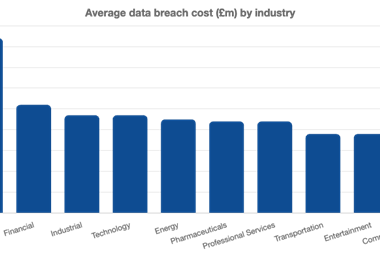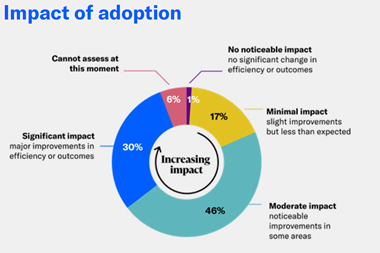A business without a website is now the exception rather than the rule, and trade on the internet has grown rapidly over recent years. But businesses are selling their wares online without giving enough consideration to the laws of other jurisdictions.
A website can be accessible throughout the world. Therefore, you are potentially acting in every jurisdiction in the world and so must comply with every relevant law in every jurisdiction. Many companies doing business over the internet are probably breaking the law in at least one jurisdiction without being aware of it. Online selling generally appears to work well. Most businesses and consumers are happy with the goods and services provided. But what of the businesses and consumers who are so unhappy with their lot that they consider taking legal action?
New Brussels Regulation
Under the Brussels Convention of 1968, in the case of cross border disputes, jurisdiction in the consumer's home state prevailed whenever the supplier solicited a contract through advertising or by invitation and the consumer had to take the steps necessary to conclude the contract in the consumer's home state. A further condition was that the supplier would have completed the contract with the consumer through the supplier's agent in the consumer's home state. Businesses trading online argued that 'advertising' did not cover advertising of goods or services on a website that could be accessed in the EU. Therefore, they could only be sued in their own courts.
The new Brussels Regulation on jurisdiction, which comes into force in March 2002, clarifies the position on this point in favour of the EU consumer (Denmark chose to opt out). A consumer can now take action in his local courts against a supplier who 'pursues commercial or professional activities' in the consumer's home state, or who 'directs such activities' to that state. As the new regulation does not define 'directing', the courts will be left to draw their own conclusions as to whether commercial activities were directed at a particular state.
This new regulation deals only with jurisdiction, not with choice of law. The two do not necessarily coincide. Businesses in the UK and other EU countries will normally be free to choose what law governs commercial contracts between them, but establishing whether the parties have agreed to a specific governing law may not be that easy.
Do a seller's online terms and conditions which contain a governing law clause, form part of the contract? Those terms and conditions may never have been drawn to the buyer's attention because, for example, they were at the bottom of the home page in small print and did not appear when he placed the order. The solution to this problem is to ensure that a buyer must accept the terms and conditions before being able to access the rest of the website and place an order.
Bad for business?
Some argue that the regulation is bad for business. The Confederation of British Industry believes that it fails to honour pledges made by European leaders to promote e-business, and more importantly, does nothing to help promote e-business in the EU.
Large businesses that trade online throughout Europe can probably afford the advice of lawyers and internet technology consultants. They will be able to install the sophisticated technology necessary to lessen the risk of non-compliance with differing national laws. Small and medium-sized businesses (SMEs) will be disproportionately affected. They will need to understand and comply with consumer protection laws of up to 15 Member States of the EU. They are likely to find the cost of compliance prohibitive. SMEs may choose to take the risk of non-compliance, or may specifically restrict trading activities to the UK market and UK consumers. This does nothing to encourage competition.
Disgruntled companies in the UK who are against the new regulation claim that there is no need for it. They argue that the consumer is already well protected by the Distance Selling Regulations (which came into force in October 2000).
Distance SellingThe Distance Selling Regulations only apply to distance contracts and to contracts with consumers. However, businesses selling online to individuals acting outside the course of their business will be caught. The regulations entitle consumers to:
- clear information before placing orders
- written information about purchases
- a seven day cooling-off period
- a full refund if goods or services are not provided by an agreed date or, if no date was agreed, within 30 days of placing an order
- protection against credit card fraud.
Minimising risk
The web may be worldwide - but you should consider whether your business necessarily needs to operate globally. If sales in particular countries are likely to be minimal, or if there could be particular problems associated with selling to those countries, you should make it clear that users in those countries are not permitted to buy through the site. You can state that deliveries to addresses in those countries will not be made or, alternatively, physically block such users from buying from your site by, for example, asking for a UK postcode.
The largest online bookseller Amazon.com is based in the US, but actively seeks UK trade by advertising in the UK and offering and supplying books there, so it would never claim that the UK was not a target. However, consider the case of Yahoo!Inc who claimed that Yahoo.com was not targeted at France.
In May last year, the League Against Racism and Anti-Semitism sued Yahoo!Inc and Yahoo France in France. The French court decided that it had jurisdiction and that Yahoo!Inc had violated French law by allowing internet users in France to access auction websites containing Nazi memorabilia. It held that Yahoo!Inc should take technical measures to make it impossible for an internet user in France to access these web pages. Yahoo!Inc argued that the court was not competent to hear the dispute, that there was no technical way to comply with the order and, if there were, its implementation would involve such an increase in costs for Yahoo!Inc that it might jeopardise its business.
Yahoo!Inc also stated that the French court was not competent because Yahoo.com directed its services towards the US, its servers were located in the US, and measures could not be enforced against it in the US as this would contravene the Constitution. The French court's response was that, although in general the website might be directed towards US users, certain objects might be of interest to those in other countries. In addition, since Yahoo displayed French advertising banners in response to a visit from someone using a computer in France, there were sufficient links with France for the court to hear the case. It also decided that the difficulties of enforcing the decision should not justify an objection to the competence of the court.
On the balance of probabilities, it may be unlikely that consumers in distant countries will ever make a claim against your business. However, you do need to calculate whether it is worth taking that risk. Remember, a country's courts are likely to accept jurisdiction and apply local laws to websites which specifically target or advertise to users there. They are unlikely to regard mere accessibility of an internet site as the basis for applying local law - but consider the Yahoo!Inc case above.
Other foreign websitesDo the regulations apply to foreign websites such as those in the US? The UK Direct Selling Regulations state that: 'These Regulations shall apply notwithstanding any contract term which applies or purports to apply the law of a non-Member State if the contract has a close connection with the territory of a 'Member State'. Does the contract have a 'close connection' with the territory of a Member State? A US supplier sending goods to the EU could prepare a contract stating that the law and jurisdiction of a particular US state apply, but this will not necessarily prevent a UK court deciding that the contract has a 'close connection' with the EU as this is where the goods will eventually be delivered.What next?
The jurisdiction issue is not easy to assess, and there is no official guidance on what constitutes directing activities at a Member State. The decision of the French court to exercise jurisdiction over Yahoo!Inc and Yahoo France has been extremely controversial. It remains to be seen whether other courts will follow the French position. A business using the web to trade can only do so much to reduce the risk of being sued in another country.
--
David Smellie is a partner and Paula Lennon is a solicitor from Davies Arnold Cooper's corporate group, Tel: 020 7936 2222, E-mail: daclon@dac.co.uk
Reduce the risk
- Don't direct a web site at users in jurisdictions where you do not, or may not, comply with relevant laws.
- Take advice on selling, advertising, and consumer law in your key target markets.
- Consider placing notices on home page stating the jurisdictions you wish to target.
- Use different terms and conditions for different jurisdictions ensuring that you comply with their laws.
- Specify acceptable currencies when quoting prices.
- Block access to those jurisdictions that you do not wish to supply with goods.



















